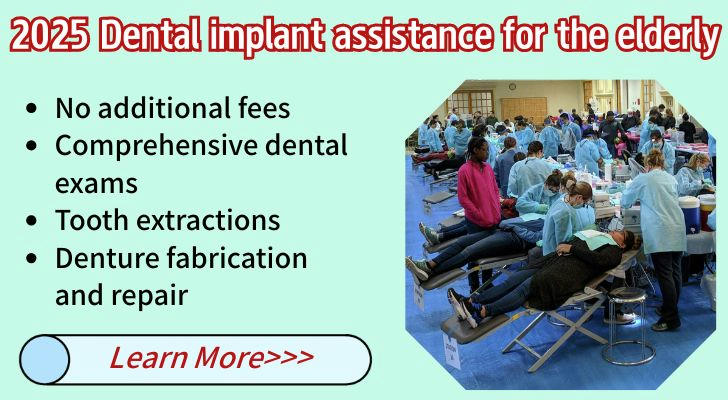🦷 Dental Implants: Safe, Lasting Options — Even If You Can't Afford It
Dental implants have revolutionized modern dentistry, offering a long-term solution for missing teeth. But as of 2025, with rising healthcare costs, many Americans are asking the same question: Can I still afford it? This concern becomes even more pressing when considering full-mouth dental implants, which can restore a complete smile but often come with a higher price tag.

Fortunately, for seniors and adults with permanent disabilities, help is available through trusted assistance programs like the Dental Lifeline Network.
What Are Dental Implants?
Dental implants are titanium posts surgically placed into the jawbone, serving as artificial roots to support crowns or bridges. They look, feel, and function like natural teeth—and they’re built to last.
Benefits of Implants:
- Long-lasting and durable
- Prevent bone loss
- Improve chewing and speech
- Restore natural smile
Current Costs in 2025
The average cost of a single dental implant in the U.S. ranges from $3,000 to $5,500. A full-mouth reconstruction can exceed $30,000. This cost often includes:
- Consultation and imaging
- Surgery and implant placement
- Abutment and crown fitting
Factors That Influence Price:
- Geographic location
- The dentist’s experience
- Type of materials used
- Any additional procedures (bone grafts, extractions, etc.)
Hidden Help: National Dental Aid Programs 🆘
If you're concerned about cost, it might be worth checking out the Dental Lifeline Network, a nonprofit program that provides dental care assistance to those who meet health, age, or income restrictions through the Donated Dental Services (DDS) or Veterans (WYSOV) programs.
Who Qualifies?
- Over 65 years of age
- Permanently disabled
- Need medically necessary dental care
This program is not insurance and doesn’t cover emergencies, but it’s a lifesaver for many who can’t afford basic dental care, including implants in some cases.
📝 How to Apply
Applying is simple but requires documentation:
- Visit the official DLN website
- Click on “Apply for Help”
- Select your state to see if the program is currently accepting new applications
- Submit your information and wait for review
Due to high demand, some states may have waiting lists or temporarily pause applications.
Are Implants Worth It?
Despite the high cost, implants are considered a lifetime investment. Compared to bridges or dentures, implants require less maintenance, preserve bone health, and rarely need replacement.
Did You Know?
Implants have a success rate of over 95% and can last 20+ years with proper care.
Payment Alternatives
If you're not eligible for aid but still want implants, consider:
- Dental schools offering reduced rates
- Monthly payment plans through dental offices
- Health savings accounts (HSA/FSA) to offset costs
- Discount dental membership plans
Summary
Getting dental implants in 2025 doesn’t have to mean financial stress. From advanced treatments to supportive non-profit programs, more people are finding ways to restore their smile without going into debt.
If you're missing teeth and considering implants, do your research, compare providers, and don’t overlook assistance programs like Dental Lifeline Network. They might just change your life—and your smile.
